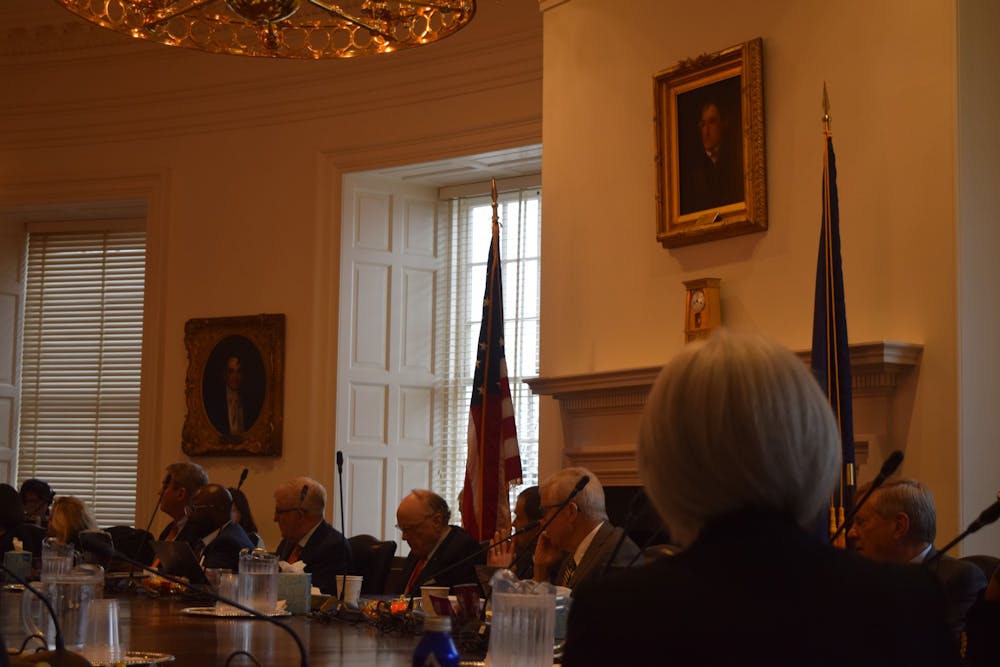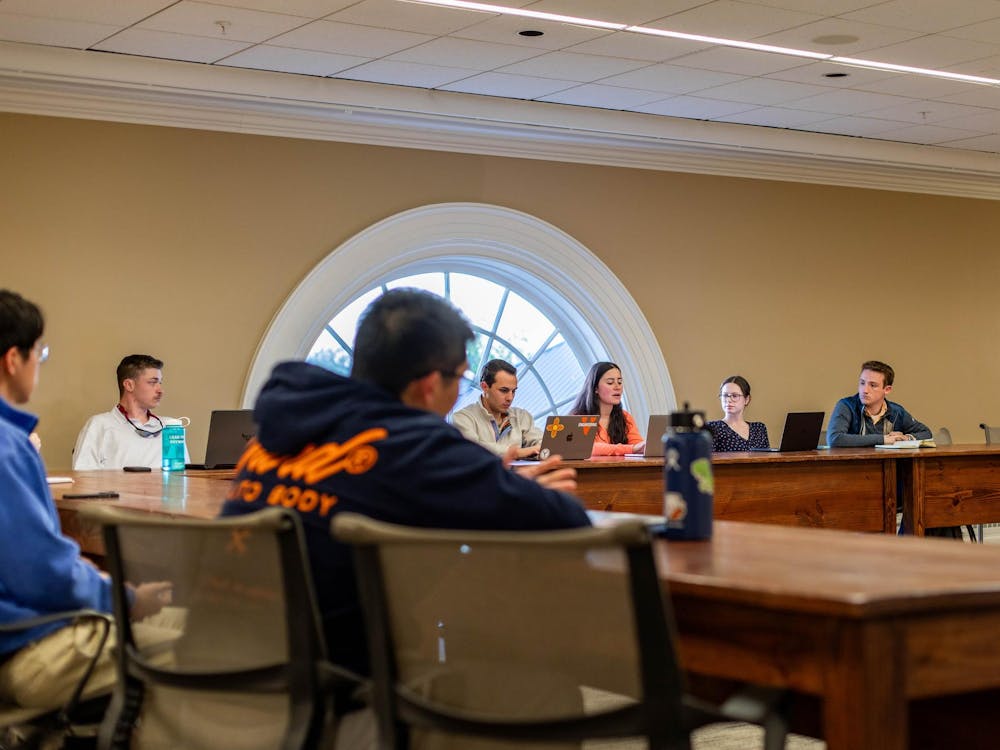The Board of Visitors’ Committee on the College at Wise discussed efforts to improve fourth-year retention through graduation by creating more academic support, as well as Year in Wise retention at the meeting — held Friday from 10:45 a.m. to 11:45 a.m. Also discussed was the Finance Board at the College at Wise’s need to alter the out-of-state tuition rate with the goal of making it more affordable.
According to the unofficial 2022 freshman and transfer retention rates, the percentage of students staying at Wise after their first year has risen dramatically this year compared to the previous five to seven years. Approximately 75 percent of freshmen and 79 percent of transfer students plan to remain at Wise in the next academic year. The Year in Wise program allows applicants waitlisted at the University to spend a year at Wise before moving to the University in Charlottesville.
Provost Tricia Folds-Bennett said the College at Wise is aiming for a retention rate of 80 percent, although they hope to eventually surpass that goal.
In an effort to improve fourth-year retention rates — which refers to the retention rates of students who graduate from Wise in four years — the College at Wise has outfitted an Academic Success Center to provide students with academic support. In addition, Wise has also updated its academic suspension policy to provide students at risk of academic suspension with additional warnings and targeted intervention from staff at the Academic Success Center.
“Given our student population, it is a moral imperative that we improve our retention,” Folds-Bennett said. “We know that for students in rural communities who are often first-generation Pell Grant recipients and who have very complicated lives, a bachelor's degree provides a pathway to social mobility and an escape from the cycles of poverty that often burden their families.”
Further Folds-Bennett said that an important aspect of retention has been implementing programs to help students grow — specifically the College at Wise has added a new graduation requirement in the form of an experiential learning project, which gives students the opportunity to take their learning outside of the classroom. The project can be integrated into a major or completed as part of an internship, study abroad program or community engagement.
Faculty Consulting Member Jinny Turman said she is excited about the new experiential learning requirement and highlighted a recent event focused on current experimental learning projects. The Appalachian Leaders and Learners Conference allowed students and faculty to present their research and work in experiential learning.
Efforts to improve the retention rate for the Year in Wise program — which refers to how many students remain at Wise after the year-long program — was also discussed, and Folds-Bennett said the College at Wise is working on integrating the Year in Wise program into its Honors College.
According to Folds-Bennett, this effort may encourage more Year in Wise participants to remain at Wise after their first year. Of last year’s 69 Year in Wise participants, only eight elected to continue at Wise.
The Year in Wise program is in its fifth year, and 84 students have indicated their participation in the program for the upcoming 2023-24 school year — a 15-person increase from this year’s 69 students. For Chancellor Donna Henry, the Year in Wise program can increase knowledge about the institution as many participants come from areas where Wise is not well known.
“The one expression that I disliked about U.Va, Wise is that we're a hidden gem — I like the gem part, I don't like the hidden part,” Henry said. “So the more we can do to actually get the word out to families and to students about the opportunity at U.Va. Wise [the better] and I actually think that this is one way that we do that.”
Wise had an increase in general admissions compared to last year, with 548 new students enrolling in the fall — surpassing their goal of 500 enrolled students. This year’s Wise applicants represent 47 states, including Hawaii and Montana. Henry said the College at Wise is beginning to look at ways to enhance out-of-state recruitment.
Henry said it’s important for the College at Wise to look at diverse opportunities for recruitment and maintain connections with enrolled students in order to bring more students to campus and keep them there.
Henry said keeping track of students who register for housing after enrollment can give the College at Wise a good sense of how many enrolled students plan to attend in the fall. Currently, 280 students have registered for housing. Housing at Wise is approximately 95 percent occupied and Henry noted that they are looking for ways to increase the amount of space available for students.
Currently, out-of-state students pay $32,540 annually, and Henry said that amount can be too much for some students. The College at Wise is currently working on a proposal to change this number.
The Board also voted to appoint Cedric Green and Valeri Jones Colyer to the University of Virginia's College at Wise Board and re-appoint Kathy Curtis, Karen Mullins and Ruby Rogers to the Board.
The Committee will meet again at the September meeting of the Board.






